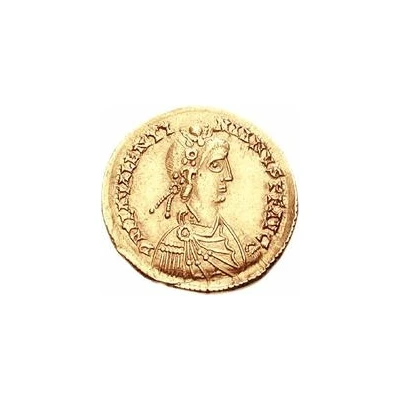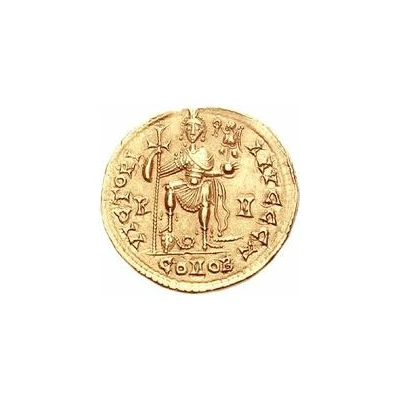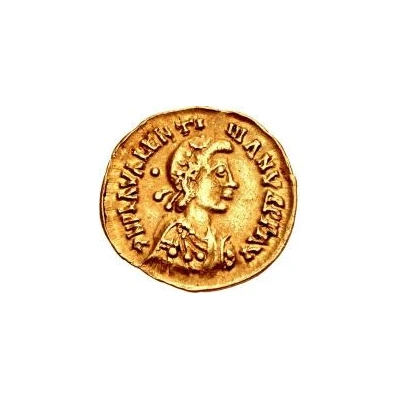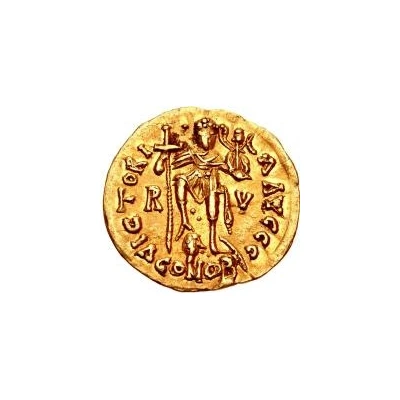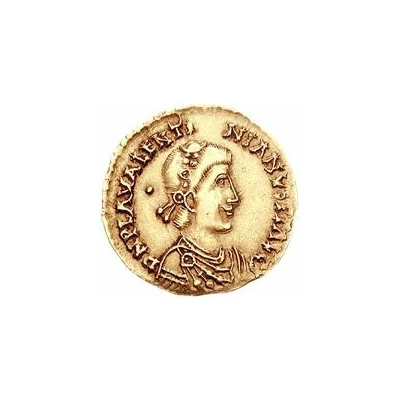
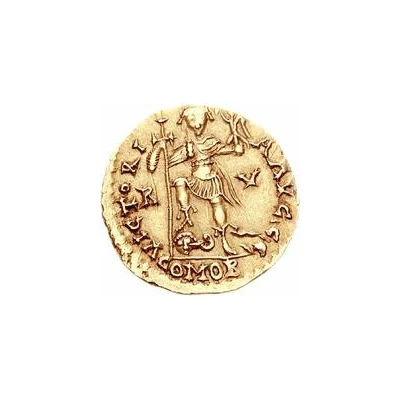

© Classical Numismatic Group, Inc.
1 Solidus In the name of Valentinian III; With ground
| Gold | 4.42 g | 22 mm |
| Issuer | Uncertain Germanic tribes |
|---|---|
| Type | Standard circulation coin |
| Years | 426-500 |
| Value | 1 Solidus |
| Currency | Solidus (circa 301-750) |
| Composition | Gold |
| Weight | 4.42 g |
| Diameter | 22 mm |
| Shape | Round (irregular) |
| Technique | Hammered |
| Demonetized | Yes |
| Updated | 2024-10-04 |
| Numista | N#153501 |
|---|---|
| Rarity index | 100% |
Reverse
Person standing while holding long cross and winged Victory, all with foot on human head and surrounded by legend.
Script: Latin
Lettering:
VICTORI - A AVGGG
R - V
COMOB
Translation:
Victoria Augustus / Constantinople
Victory of the August / Constantinople
Edge
Plain
Comment
This coin is said to be struck from the mid- to late-5th century. With the type this piece is imitating being struck in 526 at the earliest, that is also the earliest date this piece could have been struck in.Depeyrot has located nineteen examples struck in the name of Valentinian III (425-455) with a dot behind the bust. Practically all the examples found were from hoards in the Rhine Valley, leading that place to be the most likely place the Uncertain Tribe was located in. Out of all the nineteen examples, eighteen were imitating the Ravenna, and only one was imitating the Roma/Rome mint.
The coin struck in the name of Anthemius (467-472) also has a dot behind the bust, meaning that piece is possibly from the same tribe. And if this piece is from the same tribe as the solidus struck in the name of Anthemius, it is possible this piece is also from the same tribe that struck the tremissis in the name of the same ruler.
Interesting fact
One interesting fact about this coin is that it was minted during the reign of Valentinian III, who was the last Western Roman Emperor, and it features an image of him on one side and a depiction of a Germanic tribe on the other. Despite being made of gold, it weighs only 4.42 grams, making it a relatively small coin. Additionally, the fact that it was minted by an uncertain Germanic tribe adds to its historical significance and rarity.
